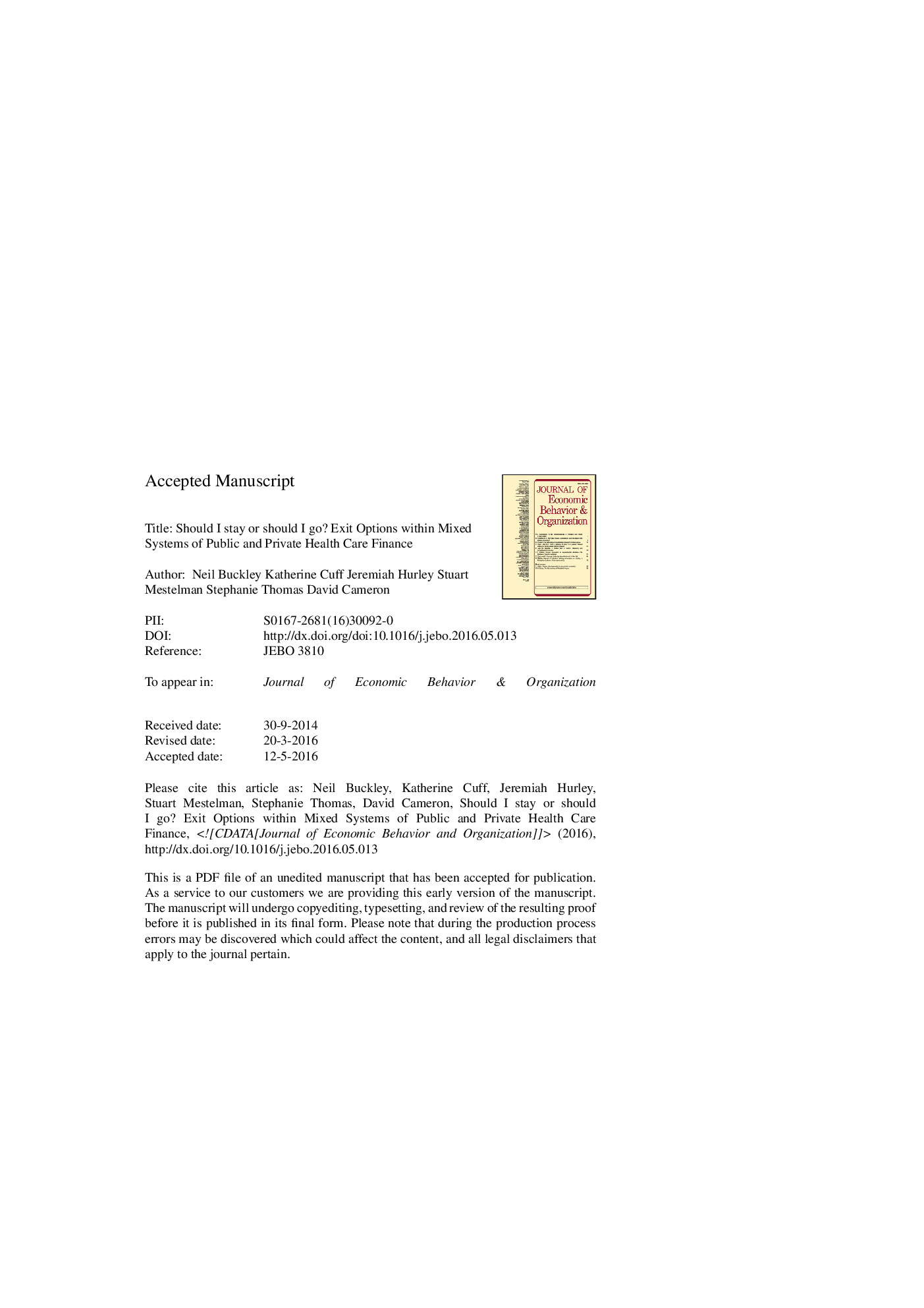| Article ID | Journal | Published Year | Pages | File Type |
|---|---|---|---|---|
| 5034538 | Journal of Economic Behavior & Organization | 2016 | 39 Pages |
Abstract
Mixed public-private finance is widespread in health care systems internationally. In one variant of mixed finance, some countries (e.g., Germany) allow eligible beneficiaries to fully exit from the public (social insurance) system and purchase private insurance. Using a controlled laboratory experiment, we empirically investigate the predictions of a political economy model of mixed systems of public and private finance with two types of exit: universal-exit, when all individuals can choose to exit the public system, and conditional-exit, when only individuals with an income at or above a threshold income level can choose to exit. We find that high-income individuals are less likely to exit under universal-exit than under conditional-exit, despite having the same incentive to exit in both treatments. Sensitivity treatments suggests that a number of factors may be at play in explaining this result, including learning effects, a priming effect and a framing effect, but that other-regarding preferences do not appear to be an important factor.
Related Topics
Social Sciences and Humanities
Economics, Econometrics and Finance
Economics and Econometrics
Authors
Neil Buckley, Katherine Cuff, Jeremiah Hurley, Stuart Mestelman, Stephanie Thomas, David Cameron,
